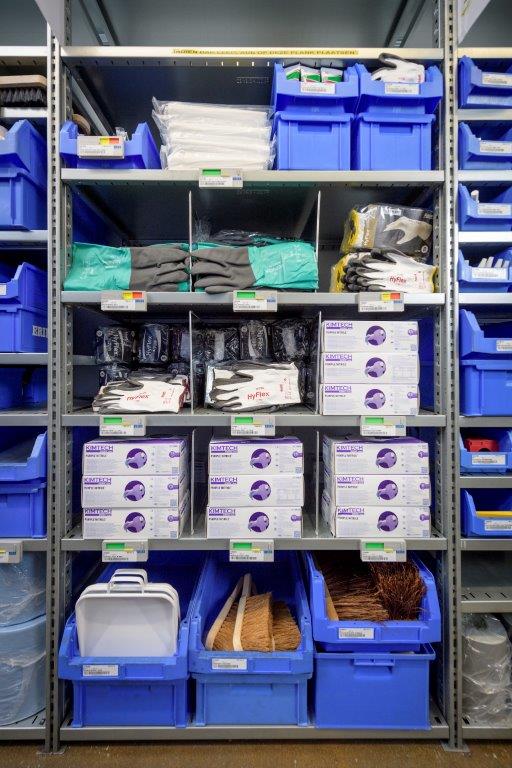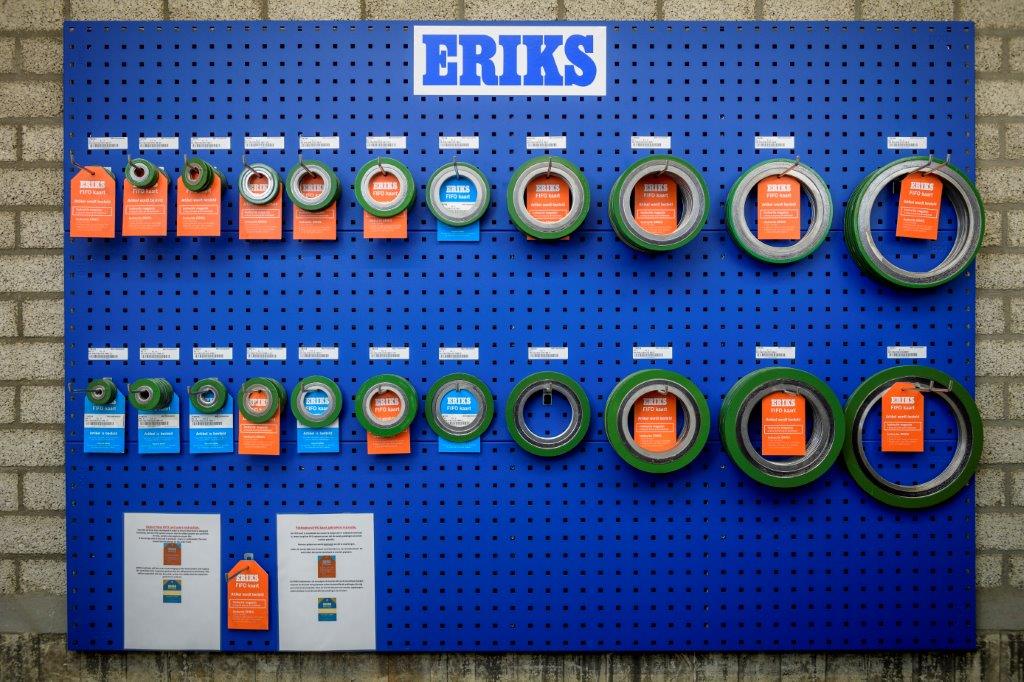Women in Engineering: From outsider to expert
How Karin Stadler defied stereotypes to become Head of Engineering in Polymer Technology at ERIKS. H...
Ensuring continuous operation of a chemical plant involves implementing robust processes and procedures. One of these is good stock management.
As a maintenance manager in the chemical industry you can’t have all the stock you’ll ever need at once. You must store enough inventory but not too much. The key is finding a balance between reducing downtime but also stock costs.
Here we explore the vital process of stock management: what it involves, and how to tackle the top stock management challenges in the chemical industry.

Chemical industry maintenance managers must have everything organised and in good working order. That means managing stock so that the right parts are available when required for maintenance.
A dependable stock management system ought to be scalable, time-saving and collaborative. It should also consist of:
Efficient stock management lets your plant operate seamlessly, optimising valuable space while reducing costs and surplus stock.
It means you know what stock you have, what you need, and how to get hold of stock you don’t.

There’s no magic bullet to mastering stock management. It involves many variables and unpredictable events. In a chemical unit a pipe or hose may burst, a flange might fail or any number of incidents occur at any time.
Your maintenance department has to be ready to face difficult scenarios to keep TCO to a minimum and maintain safety.
Here are 5 familiar stock management challenges faced by chemical plants and some solutions to face them:
1. Updating equipment
Ever-evolving technology and trends can result in equipment, parts and processes lagging behind best practices. As parts of your production line get older, you need to know how to repair and maintain them until you can afford to replace the hardware.
2. Data capture
Every maintenance manager knows the importance of having good stock data. Performing a data cleanse and setting up a regular VMI process can ensure that most spare parts are accounted for and resupplied.
A good supplier can also help you introduce barcode scanning so you never again have too many O-rings, or run out of a certain gasket. Overhauling your EDI or digital data system to match what’s actually in your warehouse is a big job, but with expert help it can make a great difference.
3. Valuable warehouse space
Poor data can lead to oversupply of stock, and inefficient storage methods will drive your costs up.
There are technical solutions available such as Vendor Managed Inventory (VMI) and vending machines to optimise your space. This also reduces the likelihood of parts becoming obsolete or expiring before you can use them.

4. Increasing uptime
You never know exactly which parts are going to break during production. A surge of pressure in a pipeline may cause a seal to give in months before expected. Your TCO takes an even greater hit if you can’t end a shutdown quickly due to missing certificates, or untested and missing spare parts.
In many chemical units, predictive maintenance monitors can be installed to warn of pending replacements before they’re critical. Consolidating your suppliers can also simplify ordering processes to allow a better overview of your stock management.
5. Reduction of stock value/TCO
It’s fine to stock high-value articles, as long as they’re useful and not left to expire. Obsolete inventory that you didn’t know about or that shouldn’t even have been ordered in the first place will turn from an asset into a massive cost on your balance sheet.
This requires accurate data, but also co-ordination between procurement, warehouse managers and maintenance managers. Take collective responsibility to ensure there’s no surplus stock or missing parts. If you have limited capacity, bring a trusted partneronsite to oversee your processes and help your TCO in the long-run.
To help alleviate some of your biggest challenges, you must simplify, streamline and optimise your stock management and inventory processes.

Download our ‘Stock Management’ report to implement practices that work, allowing you to concentrate your energies on other important factors.
Take a look at our latest updates...
How Karin Stadler defied stereotypes to become Head of Engineering in Polymer Technology at ERIKS. H...
37 01 32 89
VAT Number
NL003.076.490.B02
